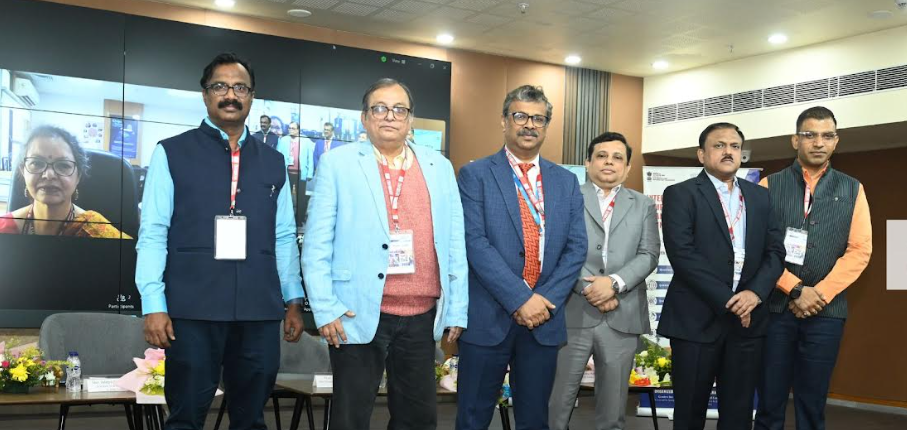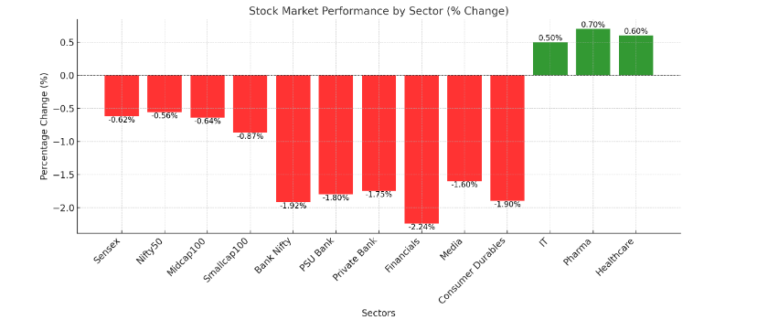Kolkata, 18th December 2024: India’s push to become a global leader in quantum technologies gained significant momentum as C-DAC Kolkata, C-DAC, Patna and C-DAC, North-East (CINE) in collaboration with the University of Calcutta, inaugurated the International Symposium on Quantum Computing and Innovations (ISQCI-2024).
Themed “Exploring the Future Frontiers of Quantum Technologies,” the two-day event, which began on 17th December at STPI, Kolkata, brought together top-tier scientists, engineers and industry leaders to showcase the latest breakthroughs in quantum computing, cryptography and artificial intelligence.
The symposium attracted a distinguished line-up of speakers, including Smt Sunita Verma, Scientist G and Group Coordinator, Ministry of Electronics and Information Technology, Government of India (Virtually); Prof. Bhaskar Gupta, Vice Chancellor, Jadavpur University; Dr. Ch A S Murty, Director of C-DAC Kolkata; Shri Aditya Kumar Sinha, Director of C-DAC Patna; and Shri Jitesh Choudhary, Director of C-DAC Silchar.

The event featured prominent quantum scientists such as Prof. Arun Kumar Pati, TCG CREST, Dr. L. Venkata Subramaniam of IBM, Dr. Joyee Ghosh from IIT Delhi, Prof. Amlan Chakraborti, University of Calcutta; Prof. Prasanta K. Panigrahi of Centre for Quantum Science and Technologies, S`O’A University, Bhubaneswar, and many others. Their discussions covered cutting-edge topics like quantum algorithms, sensing, cryptography, and AI, underscoring India’s advancements in this disruptive field.
India’s Vision for Quantum Leadership
The second edition of ISQCI, following its successful debut at IIT-BHU in 2023, highlights the growing quantum ecosystem in India. The symposium, jointly hosted by C-DAC Patna, C-DAC Kolkata, and C-DAC CINE, reflects the government’s strategic focus on quantum research and innovation, with an eye on positioning India as a global technology powerhouse.
As the symposium progresses, experts are expected to generate actionable insights into quantum research and its practical industrial applications. With discussions on quantum AI and cryptography taking center stage, the event strengthens India’s role in the competitive global quantum race.
ISQCI-2024 concludes on 18th December, with participants anticipating collaborations that will redefine the trajectory of global quantum innovation and bolster India’s position as a technological frontrunner.
While delivering the welcome address, Dr. Ch A S Murty, Scientist ‘G’, CISO & Director, C-DAC Kolkata, said, “Quantum computing is not just an evolution—it is a revolution that promises unprecedented breakthroughs across fields, from accelerating drug discovery to creating unbreakable encryption protocols and optimising global logistics in real time. While the potential is immense, it also brings challenges, such as quantum systems’ ability to disrupt existing encryption standards, as warned by global agencies. India is at the forefront of producing skilled talent, ranking second globally in quantum manpower. However, we must now aim to lead in research and innovation. This symposium provides a platform to foster partnerships between academia, industry and government, creating a roadmap for an inclusive and impactful quantum future. Let us take this event as a call to action—collaborate, innovate and push the boundaries of possibility to unlock a new era of human progress.”
Alluding to C-DAC’s extraordinary journey of innovation and excellence, Prof. Bhaskar Gupta, Vice Chancellor, Jadavpur University, said, “Emerging during an era of limited supercomputer development, C-DAC has consistently remained at the forefront of cutting-edge research—not just in computing, but across domains like signal processing, quantum technologies, and cryptography. The theme of this symposium, ‘From Classical to Quantum Computing,’ signifies a game-changing transition—a new era where the probabilistic nature of quantum systems opens doors to unprecedented computing power and problem-solving. This leap enables solutions that were once unimaginable. Quantum computing, despite its challenges in areas like data security, offers tremendous opportunities. History has shown us that what is perceived as a weakness can often lead to revolutionary advancements. Quantum algorithms, cryptography and sensing are paving the way for a new technological age. Bridging this gap is essential—we academics must understand the industry needs, just as industry must appreciate the academic language. Together, we can usher in a future of transformative innovation and knowledge, advancing human civilization to new horizons.”
Iterating on the theme of the event, Shri Aditya Kumar Sinha, Director, C-DAC Patna, added, “Quantum computing has a rich history spanning over a century, starting with foundational theories in the early 20th century. Today, we are seeing practical applications evolve rapidly, from quantum cryptography introduced in the 1980s to recent advancements in quantum internet, AI, and medical imaging. The global momentum in quantum technology is undeniable, with significant investments from countries like the USA, China, and India. In India, we are actively fostering expertise, training over 50 specialists, and collaborating with industries like TCS and global leaders like IBM to scale quantum innovations. This two-day conference is not just about sharing knowledge but also about building networks, fostering collaboration, and tapping into regional expertise. Together, we have the opportunity to leverage quantum technology for transformative advancements in healthcare, optimization, and beyond, making meaningful contributions to humanity. Let’s collaborate and shape the future of this ground-breaking field.”
Delivering the inaugural address, Smt Sunita Verma, Scientist ‘G’ and Group Coordinator, Ministry of Electronics and Information Technology, Government of India, said, “The verticals identified in the Symposium are crucial and highly relevant to the national quantum mission. This year, the focus on these initiatives is vital, especially with the ongoing push for a more robust industrial ecosystem. India is progressing and, with the right government support, our industries can rise to the global stage. This collaboration between academia and industry, particularly in the field of R&D, is essential to take us forward. We need to strengthen the ties between industries and R&D organizations to drive innovation and global competitiveness. Regarding quantum practices, our National Quantum Mission has been instrumental, and we are stepping up efforts with global partners, particularly in Singapore, to advance in quantum computing. The development of the QSim, a 12-bit quantum simulator, initiated in 2019, allows researchers online access for simulations, and we are working on scaling it further. The quantum computing initiative at IISC Bangalore, supported by significant funding, has laid the groundwork for a more integrated quantum ecosystem. Additionally, our efforts in quantum communication are progressing with real-time demonstrations, and projects using drones show promise for the future. We are also integrating High Performance Commuting (Super Computers) with quantum computing to solve real-time problems efficiently. Our quantum machine learning projects are already addressing challenges in healthcare, cybersecurity, and forecasting. Our vision is clear: we aim to support the quantum industry with world-class infrastructure, collaborations, and research that will make India a leader in the field. Through partnerships with startups, industry, and academia, we will continue to drive forward these critical initiatives to ensure our country remains at the forefront of global innovation.”
While delivering the vote of thanks, Shri Jitesh Choudhary, Director, C-DAC CINE, said, “On behalf of the organizing committee, I extend my heartfelt gratitude to our Chief Guest and Ms. Sunita Verma, Scientist ‘G’ & Group Coordinator, MeitY, a visionary leader in R&D and technology, for their inspiring presence and valuable contributions to the inaugural session. My sincere thanks to the dignitaries for providing key insights into the latest industry trends, challenges and emerging opportunities. Special appreciation goes to Mr. Aditya Kumar Sinha, Director, C-DAC Patna; for his mentorship and for spearheading this symposium, which began at IIT-BHU and has now come to Kolkata, with hopes for its next edition in the Northeast. I also thank Dr. Ch A S Murty, Director of C-DAC Kolkata and the Kolkata Centre for hosting us in this historic and culturally rich city, providing the perfect backdrop for our discussions. A big thank you to the organising team, distinguished speakers and participants who have travelled from across the country to make this event a hub for knowledge-sharing and collaboration. Over the next two days, we look forward to engaging sessions that will empower us to drive innovation and achieve new milestones in the technology domain.”


+ There are no comments
Add yours